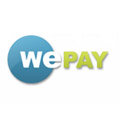Google Checkout To Close – What it means for Business

Google will close its payment processing service, Google Checkout, and eventually transition to Google Wallet.
Google Checkout’s Upcoming Closure
On 20 November 2013, Google intends to shut down its payment processing service, Google Checkout. This move is a step towards transitioning to Google Wallet, a versatile payment system. Google Checkout was introduced in June 2006 as a rival to PayPal. Initially free, it later adopted a tiered pricing model similar to PayPal. Merchants have the option to process payments through Checkout until its termination on 20th November. After this date, they’ll need to switch to an alternative payment service.
Other blog articles you may find interesting:
To facilitate this transition, Google has collaborated with Shopify for hosted storefronts, Braintree for payment processing, and Freshbooks for email invoicing. Google Play developers who currently sell on platforms other than Wallet, such as the Chrome Web Store or Google Play, will be automatically shifted to the Google Wallet Merchant Center in the coming weeks. Moreover, consumers will soon have the option to utilise Google Wallet for their purchases on merchant apps, websites, and other Google platforms using the Google Wallet button.
Alternative Online Payment Gateways
In an effort to help minimise concern over the end of Google Checkout we have looked at and reviewed alternative payment products that could be utilised as possible replacements:
 PayPal
PayPal
A widely recognised online payment solution, PayPal boasts over eighty-seven million active accounts across 190 markets, dealing in twenty-four currencies. While popular, it might not be the ideal choice for every small business.
Pros:
- Easy to set up and use
- Many customers are already familiar with the system
- You can make and send invoices directly from your account
- You can set up recurring payments
- Integration is possible with several different shopping cart systems
Cons:
- Seller protection doesn’t cover digital goods
- Costly fees for charge-backs
- It can take up to four business days for withdrawn funds to reach your bank account
- The terms of use are somewhat limited, and your account could be suspended at any time, which results in frozen funds for several months
- It can be challenging and frustrating to speak to a representative of PayPal’s customer service department
WePay
Established in 2008 as a contender to PayPal, WePay is gaining traction. It’s a solid choice for those seeking a reputable PayPal alternative.
Pros:
- Simple website integration with copy-paste codes
- Product addition with a single click
- Seamless integration with Twitter and Facebook
Cons:
- Fees are higher than PayPal
- Limited shipping settings
- Fewer customisation options per item
Google Wallet
This is Google’s venture into the mobile payment sector. The challenge lies in whether Google and its partners can craft a mobile payment system that’s both efficient and suitable.
Pros:
- Collaborations with major financial players like Citi and MasterCard, and retailers such as Subway
- Focus on lower-risk transactions
- Compatibility with the MasterCard PayPass network
- Offers convenience, especially for Android users with multiple cards
Cons:
- Requires more phones compatible with the system
- Potential competition from brands like Apple
- Convincing users of the system’s security might be challenging initially.
Apple’s Potential Payment System: There are rumours in the industry that Apple might be gearing up to introduce its own Apple Pay payment system, adding further competition in the mobile payment arena.
While these are some of the more prominent options available post-Google Checkout’s closure, numerous other payment applications exist in the market. It’s advisable to research options available in your region. The best system for your business will depend on its size, product range, and turnover.









Leave a Reply
Want to join the discussion?Feel free to contribute!